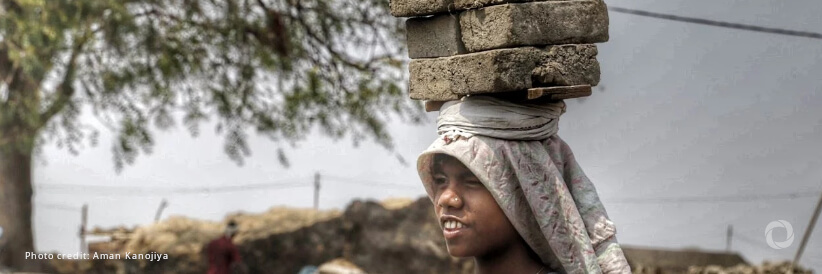The International Labour Organization (ILO) and the Government of Canada have joined forces to strengthen freedom of association and action against child labour in the Philippines.
The new project, Strengthening Freedom of Association and action against child labour in the Philippines promotes the enforcement of international labor standards. It will focus on strengthening freedom of association and the right to organize. It will also boost the country’s efforts to keep children out of child labour and in school.
The five-year project, funded by the Labour Program of Employment and Social Development Canada (ESDC) was launched on 6 August 2024 in Quezon City. Respect for fundamental principles and rights at work is important, including in the context of increased international trade.
“Canada sets the bar on workers’ rights around the world. Supporting our trading partners to strengthen workers’ rights is how we make sure those rights are upheld everywhere, so every worker has a workplace that is fair, safe, and equitable,” Minister of Labour and Seniors, Steven MacKinnon said.
The project will also examine gender-related issues or gaps in freedom of association and labor rights. It will draw on the priorities of the women workers’ agenda, as well as the vulnerabilities that children in child labor face because of their gender.
“We need a breakthrough to address child labour and rights at work. Freedom of association including the rights of workers and employers to effectively organize and bargain, as well as the effective abolition of child labour, are fundamental rights. This project is crucial to improving their conditions and building a future with social justice for all,” Khalid Hassan, Director of the ILO Country Office for the Philippines stated.
The number of working children increased significantly in the Philippines to 1.48 million in 2022. More than half at 56 per cent, equivalent to 828,000 are in child labor. The project will contribute to the Philippine Program Against Child Labour (PPACL) in recovering from the impact of the COVID-19 pandemic, which reversed the progress in reducing child labor.
Prior to the pandemic, there was a decline in the number of working children and those considered to be in child labor. However, the trend reversed with the number of working children rising between 2020 and 2022.
Meanwhile, alleged violence and harassment of workers and trade union leaders anywhere in the world for performing their jobs is unacceptable. The ILO’s Committee on the Application of Standards urged the Philippines to take steps to end violence, harassment, and intimidation as well as to implement the recommendations of the High-Level Tripartite Mission (HLTM).
Specifically, the ILO’s Committee on the Application of Standards’ HLTM recommendations included among others the creation of a Presidential Commission; a truth commission; a renewed operational structure for the National Industrial Peace Council Monitoring Body to address such cases against trade unionists; legislative reforms that would make it easier to form unions and perform their functions, including engaging in collective bargaining, and to conduct lawful strikes and collective action; and strengthening existing monitoring mechanisms and government bodies, and addressing the red-tagging of trade unionists.
Such a process involves bringing the government, workers, and employers on board to which the project aims to contribute. The project is part of the technical assistance to help move forward. There are gaps and challenges, but the ILO is ready to support the Philippines through social dialogue to find common solutions and implement actions.
Secretary Bienvenido Laguesma of the Department of Labor and Employment; Guy Boileau, Senior Trade Commissioner of the Embassy of Canada in the Philippines; and David Mercier, Deputy Director, Trade and Labour Affairs, Labour Program of ESDC, delivered their messages of support during the launch.
Jerome Adonis, General Secretary of the Kilusang Mayo Uno; Jillian Roque, Advocacy Head and Chief of Staff of the Public Services Labor Independent Confederation and Federico Marquez Jr., Governor of the Employers Confederation of the Philippines also spoke on behalf of workers’ and employers’ organizations.
Nearly a hundred key officials and representatives from the government, trade unions, workers’ and employers’ organizations, private sector, academe, civil society organizations, and development partners joined the launch. It created a platform for stakeholders to share implementation strategies to achieve results and explore areas of collaboration.

